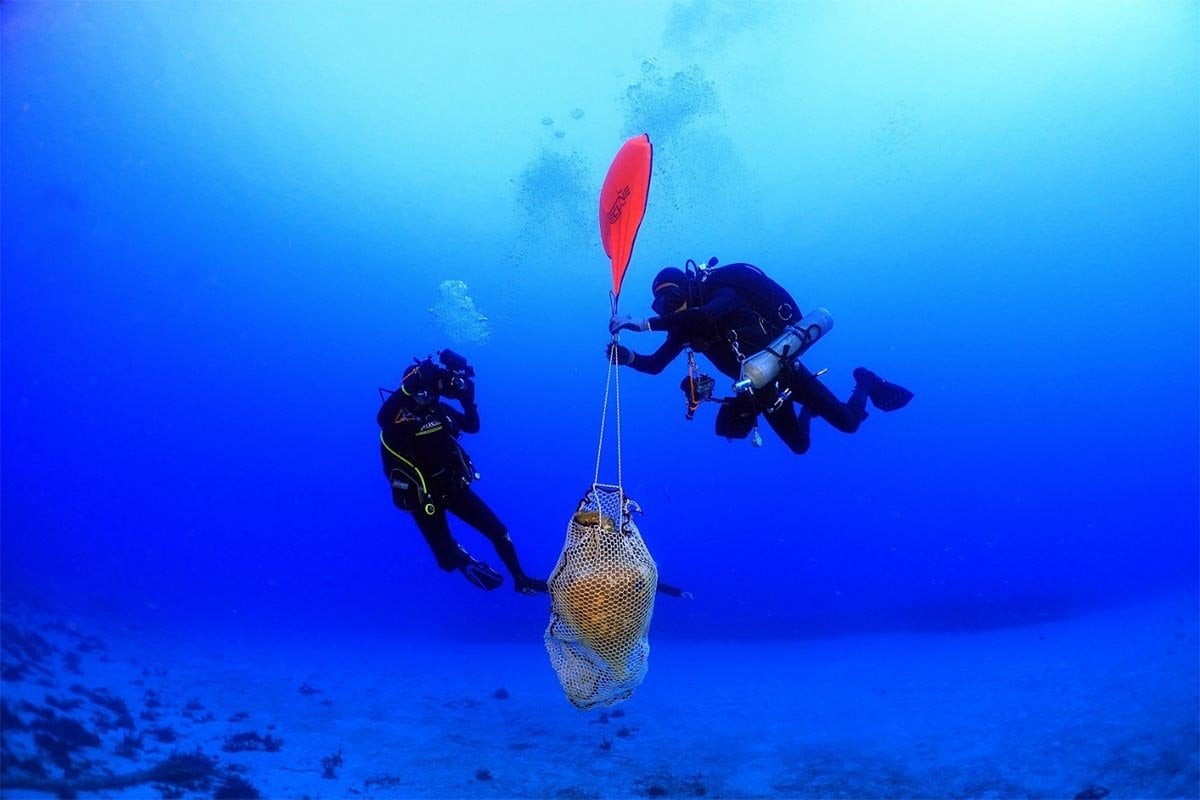
Archaeologists conducting research in the Aegean Sea have discovered a rare ancient Roman shipwreck off the coast of the Greek island of Kasos.
The shipwreck, which is dated to between 200 AD and 300 AD, is “filled with ancient treasures,” Greek officials told Ancient Origins.
The Roman vessel was loaded with ceramic amphorae—sturdy ceramic containers with pointed bottoms—produced in Guadalquivir, Spain, and present-day Tunisia, according to a statement from the Greek Ministry of Culture and Sports. The vessels were likely filled with oil from Rhodes or Asia Minor.
Over the past three years, the Kasos Maritime Archaeological Project, led by the National Hellenic Research Foundation and the Ephorate of Underwater Antiquities, has been working to locate, record, and study submerged antiquities around the island.
The most recent underwater research mission was carried out in September and October of last year. Under archaeologists Xanthis Argyris and Georgios Koutsouflakis, 100 dives were conducted by a team of 23 scientists and technicians, covering over 80 percent of the site and spending more than 200 hours on the seabed.
A diver at the Roman-era shipwreck found in sea region of Kassos island. Photo courtesy of the Kasos Maritime Archaeological Project and the Greek Ministry of Culture and Sports.
The Roman wreck is just one of several sunken vessels the project has discovered in the area, which sits along a historic maritime trade route linking the Middle East and Europe.
Other finds from this year include 1st-century BC and 5th-century BC shipwrecks, both also containing amphorae, and a sunken vessel from modern times.
Additional archaeological research is planned over the course of 2021, with the next phase featuring an unmanned, “state-of-the-art seabed detection machine,” Argyri told Greek news outlet ERT International. As work continues, he expects to detect other lost ships on the ocean’s floor.
See more photos from the site and its finds below.
Archaeologists discovered ancient amphorae from Spain and what is now Tunisia in a shipwreck off the Greek island of Kasos. Photo by Nikos Koukoulas, courtesy of the Kasos Maritime Archaeological Project and the Greek Ministry of Culture and Sports.
Amphorae from a ship that sunk off Kassos island. Photo courtesy of the Kasos Maritime Archaeological Project.
A diver investigates amphorae from a ship that sunk off Kasos island. Photo courtesy of the Kasos Maritime Archaeological Project.
A diver investigates amphorae from a ship that sunk off Kasos island. Photo courtesy of the Kasos Maritime Archaeological Project.
A diver investigates amphorae from a ship that sunk off Kasos island. Photo courtesy of the Kasos Maritime Archaeological Project.
Recovering an artifact from the ancient wreck. Photo by F. Kvalo, courtesy of the National Hellenic Research Foundation.
A diver investigating the ancient wreck. Photo by C. Hoye, courtesy of the National Hellenic Research Foundation.